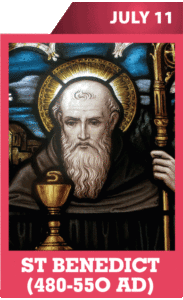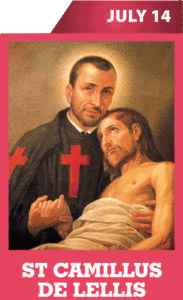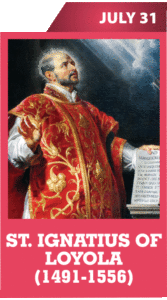Here are four inspiring human beings who displayed an exceptional dose of humanity, wisdom and goodness. Their death anniversaries occur this month.
 Some years ago, the British Council Library in London organized an unusual exhibition—on the contribution of the Benedictines to European civilization. Unusual, to say the least, for a very secular organization to highlight the contribution of a Catholic monastic order.
Some years ago, the British Council Library in London organized an unusual exhibition—on the contribution of the Benedictines to European civilization. Unusual, to say the least, for a very secular organization to highlight the contribution of a Catholic monastic order.
The fact is: The monastic tradition that goes back to Benedict did much to promote civilization. They copied manuscripts and built up libraries. Monasteries became centres of education and learning.
In a culture that despised manual labour (and relegated it to serfs, who were semi-slaves), the monks engaged in manual labour. They tilled the land, cultivated food, invented medicines.
At a time of strict social hierarchy, monasteries promoted equality. All monks were treated as equals, whether they came from the land-owning classes or from serfs.
All this was revolutionary for the time.
It was the result of the spiritual quest of one man—Benedict of Nurcia. As a young man, put off by the worldliness of his peers, he became a solitary and lived alone. Others sought him out, and asked for his guidance. This is how the Benedictine monastic tradition started. As a help for his monks, he wrote a simple Rule, which became a classic—Regula Sancti Benedicti (St. Benedict’s Rule).
According to Benedict, the monks were to live in community, not alone. They prayed together, worked together, interacted. Benedict did not believe in extraordinary physical penances or deprivations, but in a life of moderation.
Such seekers needed wise guidance. Hence the crucial role of the abbot, who was expected to be strict and caring, wise and open to others’ ideas. In fact, knowing how the vow of obedience could be misused by a callous superior, Benedict warned that, if an abbot imposed on the monks what he wanted rather than what God wanted, he would go to hell!
The monks taught Europe to combine prayer and work, silence and activity, intellectual pursuits and manual labour. That remains relevant even today—in any culture.
————————————————————————————————————————————————————————
 Imagine a giant of a man—six feet six inches in height—a former solider with a notorious bad temper and addicted to gambling who said he wanted to look after the sick. He did work hard, but his fierce temper made those in charge of the hospital dismiss him. I remember a radio play on him in which his military superior tells him, “The best favour you can do us is to go and join the enemy.” Gambling led to his losing all his possessions. An unlikely candidate for sainthood, right?
Imagine a giant of a man—six feet six inches in height—a former solider with a notorious bad temper and addicted to gambling who said he wanted to look after the sick. He did work hard, but his fierce temper made those in charge of the hospital dismiss him. I remember a radio play on him in which his military superior tells him, “The best favour you can do us is to go and join the enemy.” Gambling led to his losing all his possessions. An unlikely candidate for sainthood, right?
Further, he suffered from a very painful and disfiguring wound on his leg most of his life. He set up a group of men who were interested in looking after the sick, and treating patients as human beings. You may ask what is so novel about that. The novelty was remarkable, for the way sick people were treated in those days ranged from bad to awful. Caring for the sick, especially in times of the dreaded plague, was not a work normal people wanted. So, criminals were roped in to do the work.
Camillus would go to the hovels of the poor to find the sick and treat them. His men looked after wounded soldiers on battlefields. In fact, the large red cross on the Camillian habit was the forerunner of the now famous Red Cross. A number of his companions died of contagious diseases contracted while caring for the sick.
A religious experience attributed to Camilllus was a message Christ gave him from a crucifix in Rome: “Why are you afraid? Do you not realize that this is not your work but mine?”
Inspired by the same Lord, a laudable initiative his followers—the Camillian Fathers—have done in India is to work for AIDS patients, and to train others in this work.
————————————————————————————————————————————————————————
 An unusual man who lived in unusual times.
An unusual man who lived in unusual times.
The setting: The Spanish conquest and colonization of South America. The original inhabitants were seen by the conquering Spaniards as less than human, with no rights. The majority of them died, through ill-treatment and disease brought in by the colonizers.
De La Casas was a Spaniard, who at first benefited from the racial oppression of the natives. He later became a priest and worked in Latin America. As a Spaniard, he was given an “encomienda” (an estate) with gold and slaves.
He saw more and more clearly that, while the church preached the Gospel to the local people, the colonizers’ main motivating force was greed. They were not after souls, but gold. He started criticising the cruel practices of his countrymen towards the “Indian” populations—a stand that won him many enemies.
Later, he joined the Dominican order. His opposition to the cruel treatment of the natives became stronger. He pleaded with the Spanish government to see the Indians as human beings with their own rights. In this sense, he is considered a pioneer of human rights. In fact, he engaged in debates with another Spanish theologian who held that the Indians were not fully human.
Partly to get rid of him, the church made him bishop of Chiapas in Mexico. There, a number of Spanish Catholics turned against him, when he insisted that priests should withhold absolution from anyone who did not free his slaves. He went back to Spain, where he continued his struggle for the rights of the conquered peoples, who were seen by many of his countrymen—including church officials—as less than human.
In the sad and cruel combination of the merchant-military-missionary thrust into non-European cultures, the colonizers displayed exceptional greed, cruelty and racial bigotry. Bartolomé de las Casas was a courageous and noble exception—a prophet ahead of his times.
————————————————————————————————————————————————————————
 What can a Salesian—who has had a number of Jesuit professors, colleagues, students and close friends—write about this well-known saint?
What can a Salesian—who has had a number of Jesuit professors, colleagues, students and close friends—write about this well-known saint?
One: That Ignatius practised and taught a “worldly spirituality”—not one of withdrawal from the world, but of “finding God in all things.” Thus, the sons of Ignatius have included outstanding teachers, writers, scientists, college administrators, and, of course, missionaries and martyrs.
Two: That the best we can do with our life is to find out what God wants of each of us, and do it generously. This process, called “discernment,” is a gift of God to the church through Ignatius and the Jesuits. The Ignatian “spiritual exercises” are meant to help the retreatant to go through this process. As a famous Jesuit scholar, Karl Rahner, would say, all this theology flowed out of his experience of the Spiritual Exercises.
Three: A saying of Ignatius that I love: Opus divinum, quo universalius, eo divinius. A loose translation would be: “In working for God, the more universal a task is, the more divine it is.” A great antidote to petty interests and narrowness of mind. Right from the beginning, Ignatius, like other great founders, sent his brother religious to distant missions and faraway cultures.
Four: Ignatius’ heart was in the right place—keen on seeking God alone. Hence his famous prayer (called Suscipe in Latin): “Take, Lord, and receive all my liberty, my memory, my understanding, and my entire will, all I have and call my own. You have given all to me. To you, Lord, I return it. Everything is yours; do with it what you will. Give me only your love and your grace, that is enough for me.”
May that be enough for each of us, too.

To subscribe to the magazine Contact Us





